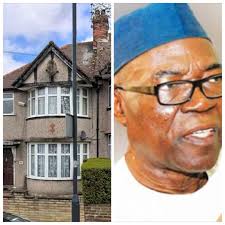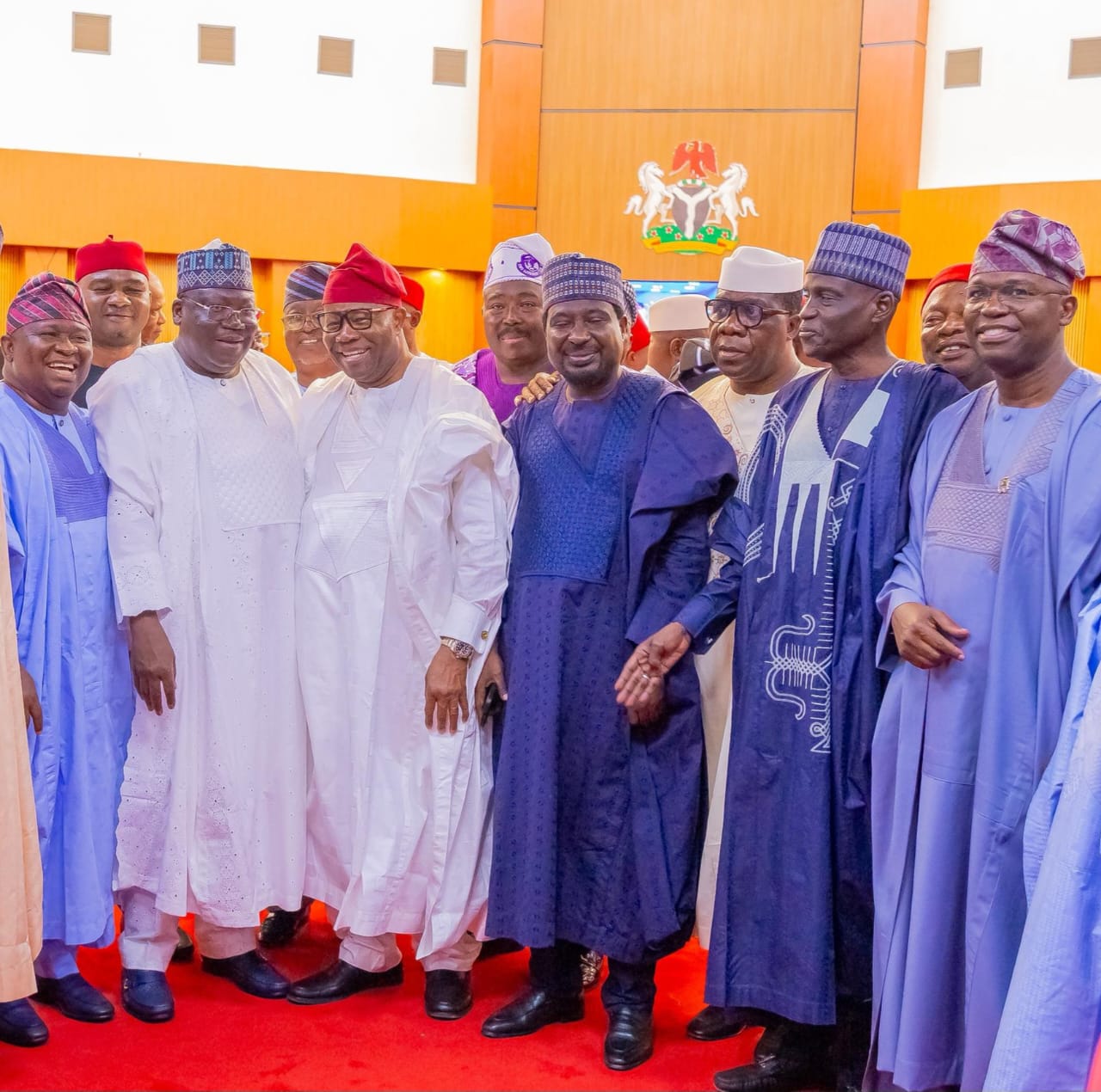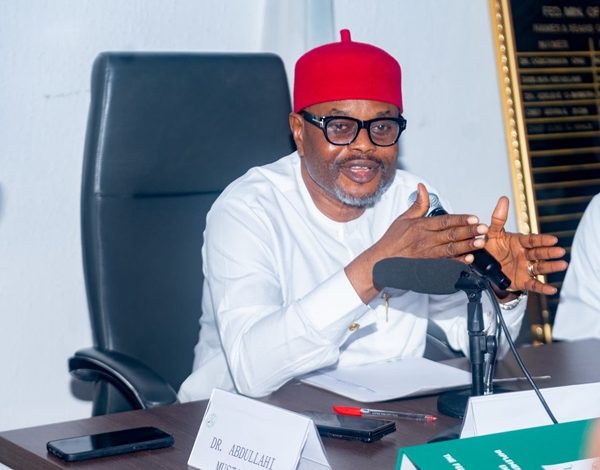Uncategorized
Why The Economy May Not Be Responding Fast EnoughBy: A G Abubakar

The nexus of monetary policy is “inflation.” It ties in prices, employment, interests, and exchange rates among other variables. Controlling inflation has literally come to define the functions of most central/reserve banks around the world. Incidentally, the phenomenon of inflation in an economy has a direct bearing on national output and productivity. Inflation can not be kept down so long as the national output of goods and services over the decade has been lacklustre.
This is going by such figures as the nation’s GDP (less than 2.5% decade average), the negative balance of trade, and a series of devaluation and manufacturing capabilities dwindling by the day. All are happening against the backdrop of serious challenges being encountered in the agricultural sector on account of insecurity and climatic factors. Add the annual population growth of 2.6% that is higher than the GDP, and the economic challenges, in the short run, become more intricate.
Forty per cent of farmers across such states as Borno, Yobe, Adamawa, Taraba, Benue, Katsina, Zamfara, Sokoto, Kebbi, and to lesser extent Niger and Kaduna can not successfully till the land. It’s obvious the implications on this development on labour and availability of food, and even agro raw materials.
In a situation like this, the CBN macroeconomic tools MPR, CRR, OMO, LR, Fx Interventions, etc) can only go as far. There is a minimum threshold of national output that could make such tools effective. It’s common sense.
Currency devaluation in low-producing economy amounts to net economic loss expressed in galloping and externaly induced inflation. As for food inflation, the nbs has this to say “After 19 straight months of a fiery inflationary surge, Nigeria’s inflation turned the corner in July, decelerating to 33.4% from 34.2% a month before…Interestingly food inflation slowed by1.34%…” a drop that is greater than the difference between the 33.4 and 34.2 rates. Many factors outside policy might have contributed to this marginal development, especially the arrival of some new food items in the market, plus the “improved” access to inputs.
The devaluation (forex pressure) of the Naira is likely to make this “improvement” unsustainable against the backdrop that the country’s food and beverage bill increased by 30% from the last quarter of 2023 and first quorta of 2024. The nation also expends over 65% of its annual budget on debt service. Devaluation, debilitating debt overhung, and massive imports are strange bedfellows! Economics devalue or float currency to stimulate export by making their products comparatively cheaper, among other factors. Therefore, to float the national currency, which is a euphemism for devaluation, is tantamount to net economic loss. A scenario that could be worsened by being an oil dependant economy.
Oil is under curtail, so devaluation does not affect its demand.
As it were, oil export accounts for around 90% of the nation’s foreign exchange. Therefore, stabilising the exchange rate will largely depend on the curtailment of local demand, which could reasonably be achieved through boosting national output, especially food and agro raw materials. A policy strategy that has yet to take root. And it may not, unless backed by enormous political will.
The fact is that the current harsh economic environment and the various security challenges across the land pose serious drawbacks to macroeconomic policies. But willy nilly, they have to be addressed first to ensure both food self-sufficiency and security. This is yet to be seen in realistic terms. China, India, Brazil, etc, leverage their initial take-off via national food sufficiency and the agro allied industries.
The Brazilian coffee, and sugar, the Indian spices, and Basmati rice and the Chinese noddles and cusines are now major global exports after satisfying local demand. They are testaments to the power of homegrown economic models based on local factor endowments, especially in agriculture and SMEs.
Government should pay more attention to this economic model as it accords the IMF/WB a tangential recognition for “peace to reign.” The IMF/WB and other externally prescribed “structural adjustment programme” (SAP) more often than not, place more premium on National Account Book balance/health rather than the individual economic health of the citizens. The capacity to descerne the conflicts of interest determines the success or otherwise of government’s reforms during periods of serious economic downturn.
A.G.Abubakar agbarewa@gmail.com
Uncategorized
London Property Dispute Exposes Alleged Corruption, Forgery by Nigerian Politician and Lawyer

By Hassan Taiye
A recent judgment by the UK’s First-tier Tribunal (Property Chamber) has shed light on a complex web of alleged corruption and forgery involving a Nigerian politician and a senior lawyer. The case revolves around a disputed property in North London, valued at 79 Randall Avenue.
The property was purchased in 1993 under the name “Tali Shani,” which is allegedly an alias for late General Jeremiah Useni, a powerful member of the Abacha regime. Chief Mike Ozekhome, SAN, claimed the property was gifted to him by “Mr. Tali Shani” in 2021 as payment for legal services. However, the tribunal dismissed this claim, describing it as “fabricated” and “fraudulent.”
The tribunal’s ruling highlights the alleged involvement of Ozekhome and his associates in fabricating documents, including a Nigerian passport, National Identification Number (NIN), and Tax Identification Number (TIN). The NIN was reportedly created remotely from Monaco using a non-compliant photograph and bypassing biometric requirements ¹.
The Human and Environmental Development Agenda (HEDA Resource Centre) has petitioned the Independent Corrupt Practices and Other Related Offences Commission (ICPC) to investigate Ozekhome and others over alleged fraud, forgery, and unlawful attempt to acquire the London property. The ICPC has launched an investigation, and the Attorney-General of the Federation (AGF) has also taken notice of the case ²
Chief Mike Ozekhome, SAN Senior lawyer accused of forgery and attempting to acquire the property through fraudulent means.
General Jeremiah Useni Late Nigerian General allegedly behind the purchase of the property under the alias “Tali Shani.”
Osilama Ozekhome*: Ozekhome’s son, implicated in the alleged forgery and fraud.
Uncategorized
photo

L-r Senate Committee Chairman on Appropriation, Solomon Adeola; Senate Deputy Whip, Onyekachi Nweboyin; Former Senate President, Ahmad Lawan; President of the Senate, Godswill Akpabio; Senator Sharafadeen Ali; Deputy Senate President, Jibrin Barau; Senate Leader, Opeyemi Bamidele; Senate Whip Tahir Monguno and Senate Committee Chairman on Financial Institutions, Tokunbo Abiru, after resumption of plenary yesterday. Photo: Senate President’s Office
Uncategorized
BREAKING: Tinubu’s Minister, Uche Nnaji, Resigns Amid Certificate Forgery Scandal

By: Fabian Apechihin
The Minister of Innovation, Science and Technology, Uche Nnaji, has resigned from President Bola Ahmed Tinubu’s cabinet amid a growing controversy surrounding his academic credentials.
Presidential spokesman Bayo Onanuga confirmed Nnaji’s resignation in a statement issued late Tuesday.
Nnaji’s exit follows mounting allegations that his academic certificates were forged. Investigations revealed that the University of Nigeria, Nsukka (UNN), disowned the Bachelor of Science degree he claimed to possess, stating that he never completed his studies at the institution and was therefore not issued any certificate.
According to UNN Vice-Chancellor Prof. Simon U. Ortuanya, Nnaji was admitted in 1981 but failed to meet the requirements for graduation.
In a related development, the National Youth Service Corps (NYSC) reportedly disowned the certificate of national service presented by Nnaji, describing it as fake.
His resignation marks the latest in a series of controversies to hit the Tinubu administration over questions of integrity and accountability among public officials.
-

 Uncategorized5 years ago
Uncategorized5 years agoFG, states urged to harness flooding for ranching, others with technology – Agbaje
-

 Headlines10 years ago
Headlines10 years agoBreaking: EFCC seals Borno House of Assembly, as Hon members take to their heels
-

 News11 years ago
News11 years agoNigeria Security Operatives Stage Manhunt For Homosexual Perpetrator
-

 News9 years ago
News9 years agoHow 21-year-old Girl fled community over accusation of lesbianism
-

 News10 years ago
News10 years agoYobe Gov Moves Against Deputy
-

 Opinion6 years ago
Opinion6 years ago7 signs she has friend zoned you
-
Technology4 years ago
Online job placement company headhunts women
-

 Headlines9 years ago
Headlines9 years agoBorno Dep Gov Abducts Another Church Leader





